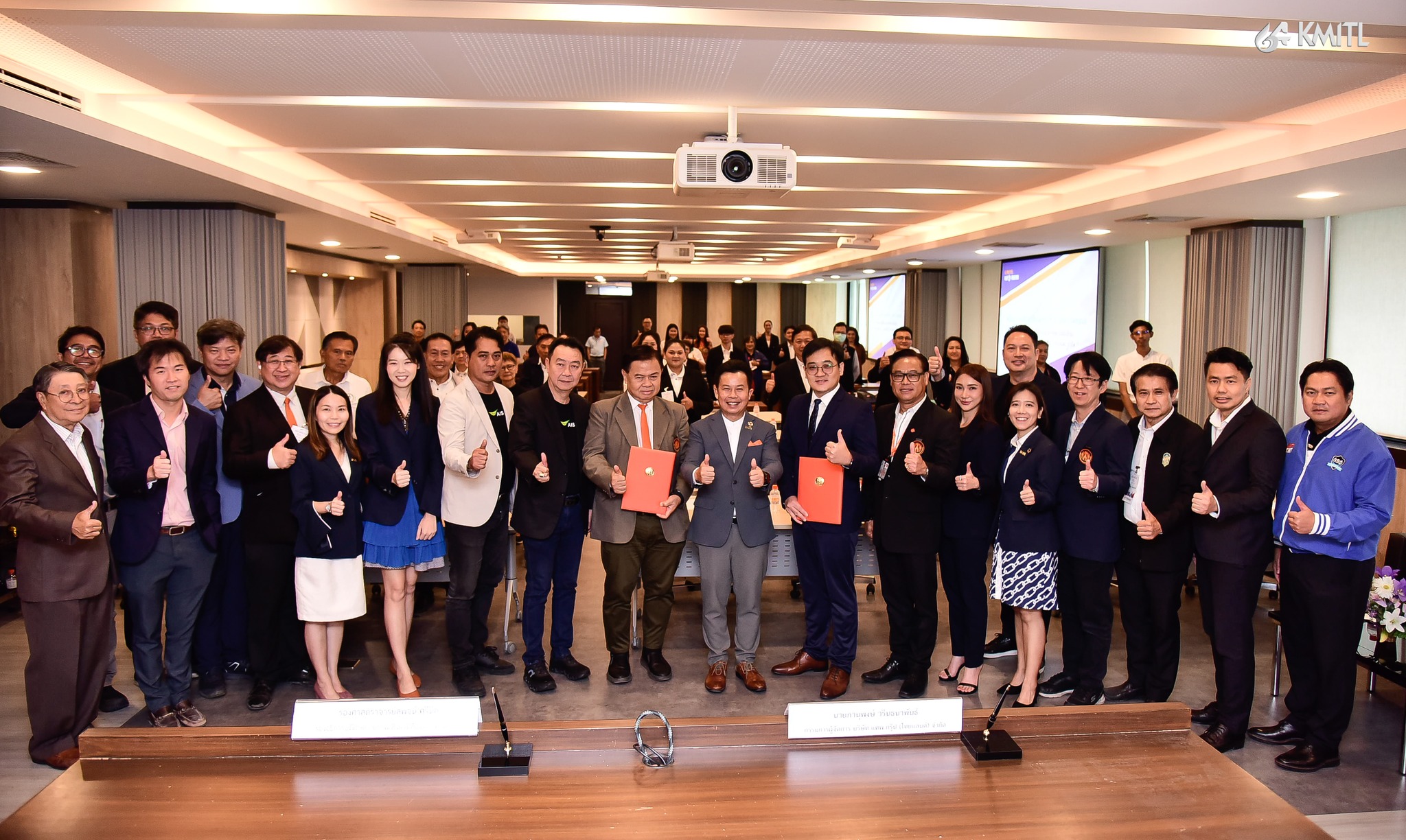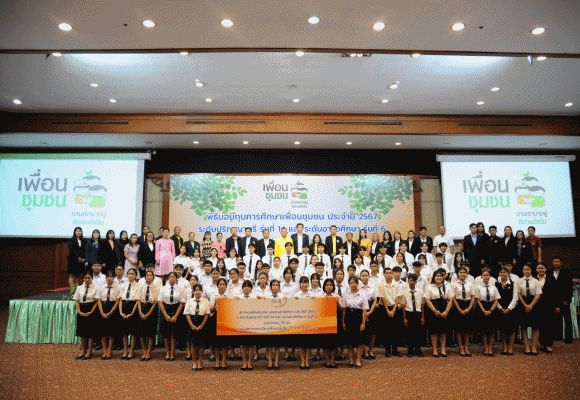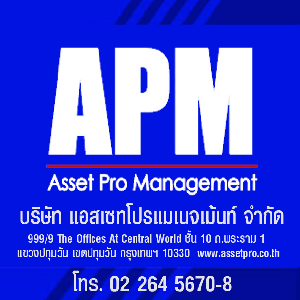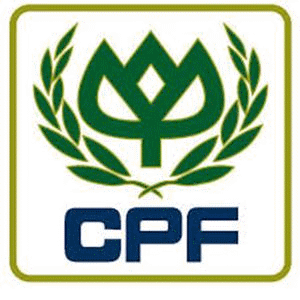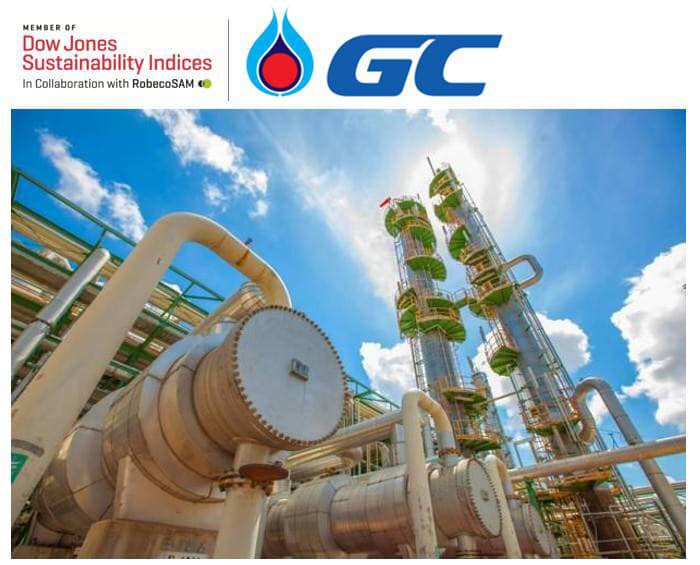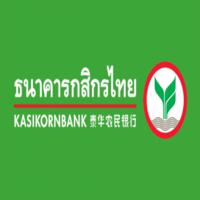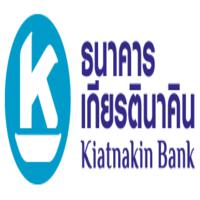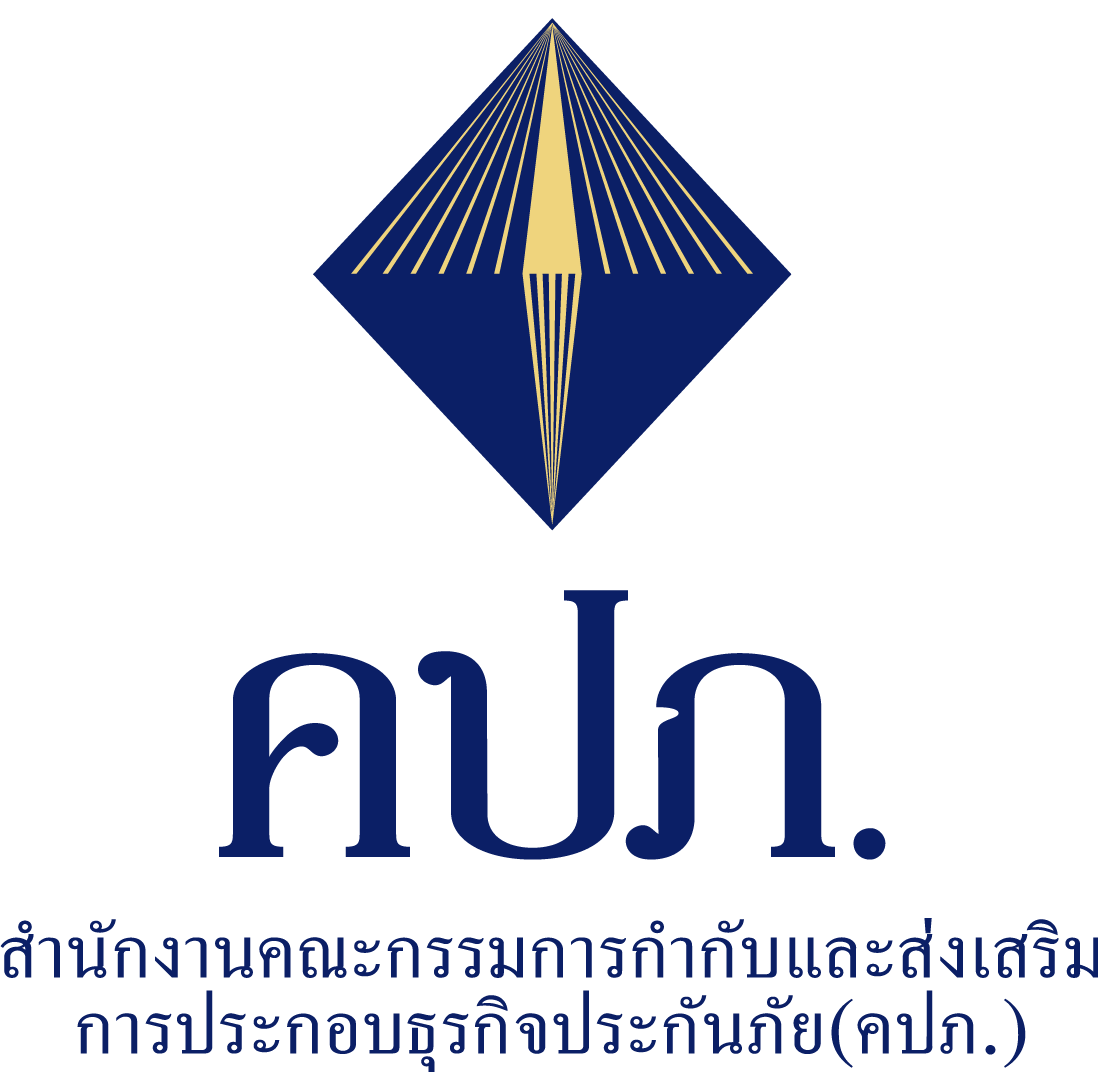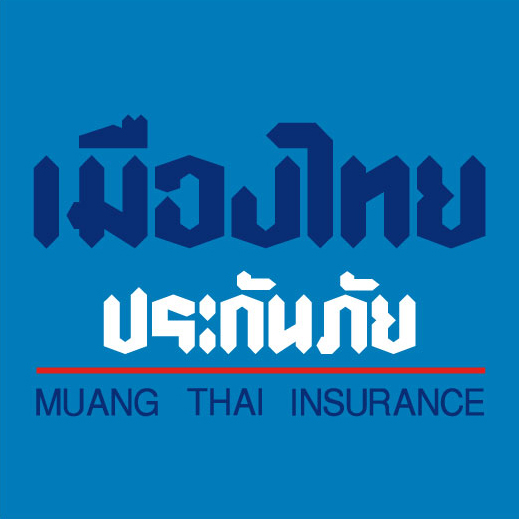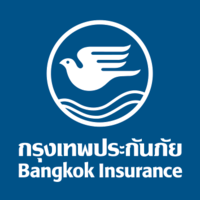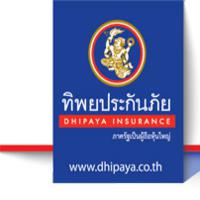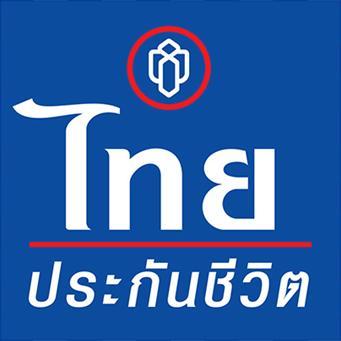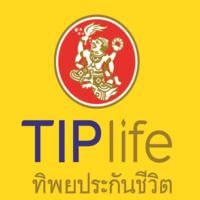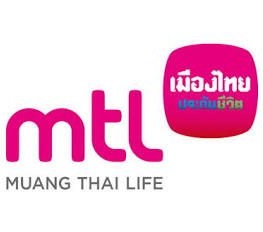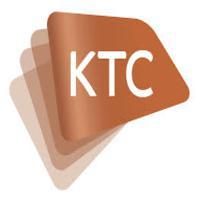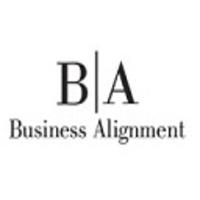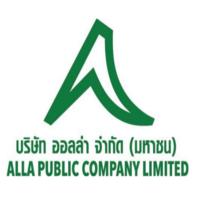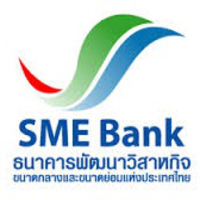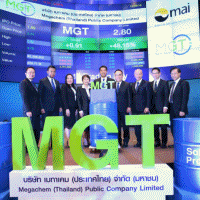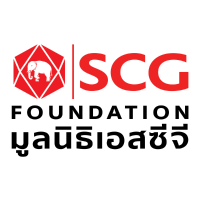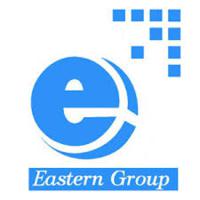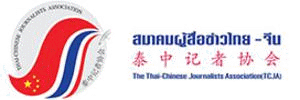- Details
- Category: แบงก์พาณิชย์
- Published: Sunday, 17 May 2020 12:23
- Hits: 4844
 ฟิทช์ ปรับแนวโน้มอันดับเครดิตของ ธ.ทหารไทย เป็น ‘แนวโน้มมีเสถียรภาพ’และคงอันดับเครดิตสากลที่ ‘BBB-’
ฟิทช์ ปรับแนวโน้มอันดับเครดิตของ ธ.ทหารไทย เป็น ‘แนวโน้มมีเสถียรภาพ’และคงอันดับเครดิตสากลที่ ‘BBB-’
ฟิทช์ เรทติ้งส์ – สิงคโปร์/กรุงเทพฯ – 14 พฤษภาคม 2563: ฟิทช์ เรทติ้งส์ ประกาศปรับแนวโน้มอันดับเครดิตของอันดับเครดิตสากลสกุลเงินต่างประเทศระยะยาว (Long-Term Foreign Currency Issuer Default Rating) และอันดับเครดิตภายในประเทศระยะยาว ของ ธนาคารทหารไทย จำกัด (มหาชน) หรือ TMB เป็น ‘แนวโน้มอันดับเครดิตมีเสถียรภาพ’ จากเดิม ‘แนวโน้มอันดับเครดิตเป็นบวก’ และคงอันดับเครดิตดังกล่าวที่ ‘BBB-’ และ ‘AA-(tha)’ ตามลำดับ พร้อมกันนี้ฟิทช์ได้ปรับลดอันดับเครดิตภายในประเทศของหุ้นกู้ด้อยสิทธิของธนาคารเป็น ‘A(tha)’ จาก ‘A+(tha)’ สำหรับรายละเอียดของอันดับเครดิตทั้งหมดแสดงไว้ในส่วนท้าย
การปรับแนวโน้มอันดับเครดิตของ TMB สะท้อนถึงความท้าทายของสภาพแวดล้อมในการดำเนินธุรกิจและผลกระทบที่รุนแรงต่อเศรษฐกิจจากการแพร่ระบาดของโคโรน่าไวรัสที่กระจายไปในวงกว้าง โดยผลกระทบดังกล่าวได้เพิ่มแรงกดดันต่อเศรษฐกิจของประเทศไทยที่กำลังชะลอตัว แม้ว่าทางการจะมีมาตรการผ่อนปรนในด้านการจัดชั้นสินเชื่อและการปรับโครงสร้างหนี้ซึ่งอาจช่วยชะลอผลกระทบต่อคุณภาพสินทรัพย์ได้บ้าง แต่มาตรการเหล่านี้ไม่น่าจะหักล้างความเสี่ยงที่เกิดขึ้นได้ทั้งหมด โดยเฉพาะในกลุ่มลูกหนี้ที่มีฐานะทางการงินที่อ่อนแอหรือเป็นกลุ่มที่มีความเปราะบาง สำหรับข้อมูลเพิ่มเติมเกี่ยวกับสภาพแวดล้อมในการดำเนินงานของธนาคารไทยสามารถดูได้จาก “Coronavirus Outbreak Increases Challenges for Thai Banks’ Operating Environment” ลงวันที่ 2 เมษายน 2563 ที่ https://www.fitchratings.com/site/pr/10116671
แม้ระยะเวลาและแนวโน้มความรุนแรงของสถานการณ์การแพร่ระบาดของโคโรน่าไวรัสยังมีความไม่แน่นอน แต่อย่างไรก็ตามอัตราส่วนทางการเงินที่สำคัญในด้านคุณภาพสินทรัพย์และด้านรายได้และผลกำไรในช่วง 18-24 เดือนข้างหน้าน่าจะปรับตัวลดลงไปต่ำกว่าระดับที่ฟิทช์เคยคาดการณ์ไว้ก่อนหน้าอย่างมีนัยสำคัญ
ปัจจัยสนับสนุนอันดับเครดิต
อันดับเครดิตสากลสกุลเงินต่างประเทศ อันดับเครดิตภายในประเทศ และอันดับเครดิตของหุ้นกู้ไม่ด้อยสิทธิ
อันดับเครดิตสากลสกุลเงินต่างประเทศ อันเครดิตภายในประเทศและอันดับเครดิตหุ้นกู้ไม่ด้อยสิทธิของ TMB มีปัจจัยสนับสนุนมาจากความแข็งแกร่งทางการเงินของตัวธนาคารเอง ซึ่งสะท้อนได้จากอันดับความแข็งแกร่งทางการเงินของธนาคาร (หรือ Viability Rating) นอกจากนี้อันดับเครดิตสากลสกุลเงินต่างประเทศระยะยาวของธนาคารที่ ‘BBB-’ ปัจจุบันอยู่ในระดับเดียวกันกับอันดับเครดิตสนับสนุนขั้นต่ำ (Support Rating Floor) ซึ่งหมายความว่าอันดับเครดิตสนับสนุนขั้นต่ำอาจเปลี่ยนมาเป็นปัจจัยสนันสนุนหลักของ อันดับเครดิตสากล อันดับเครดิตภายในประเทศและอันดับเครดิตหุ้นกู้ไม่ด้อยสิทธิของธนาคารได้ ในกรณีที่อันดับความแข็งแกร่งทางการเงินถูกปรับลดอันดับลงและฟิทช์ยังไม่มีการเปลี่ยนแปลงมุมมองต่อความสามารถและโอกาสที่รัฐบาลจะให้การสนับสนุนเป็นพิเศษ (extraordinary support) แก่ TMB
อันดับเครดิตภายในประเทศของ TMB ยังพิจารณาถึงความแข็งแกร่งด้านเครดิตของธนาคารเทียบกับธนาคารหรือบริษัทอื่นที่ได้รับการจัดอันดับเครดิตภายในประเทศ
อันดับเครดิตของหุ้นกู้ไม่ด้อยสิทธิอยู่ในระดับเดียวกันกับอันดับเครดิตสากลสกุลเงินต่างประเทศระยะยาวของธนาคาร เนื่องจากหุ้นกู้ดังกล่าวมีสถานะเป็นภาระผูกพันที่ไม่ด้อยสิทธิและไม่มีหลักประกันของธนาคาร
อันดับความแข็งแกร่งทางการเงิน
อันดับความแข็งแกร่งทางการเงินของ TMB สะท้อนถึงโครงสร้างธุรกิจของธนาคาร (company profile) ที่ปรับตัวแข็งแกร่งขึ้นหลังจากการควบรวมกิจการกับธนาคารธนชาต จำกัด (มหาชน) แต่อย่างไรก็ตามฟิทช์เชื่อว่าความท้าทายที่เพิ่มขึ้นของสภาพแวดล้อมในการดำเนินงานจะเป็นอุปสรรคในการที่ความแข็งแกร่งทางการเงินของ TMB จะปรับตัวดีขึ้นอย่างมีนัยสำคัญในระยะสั้นถึงระยะปานกลาง โดยการคาดการณ์ดังกล่าวนี้ตรงกันข้ามกับการคาดการณ์เดิมของฟิทช์ก่อนที่สภาพแวดล้อมในการดำเนินงานจะปรับตัวแย่ลงจากผลกระทบของการแพร่ระบาดของโคโรน่าไวรัส นอกจากนี้ความเสี่ยงจากการดำเนินการควบรวมกิจการ (execution risk) อาจปรับเพิ่มสูงขึ้นอีกได้ เนื่องจากภาวะเศรษฐกิจที่อ่อนแอและแรงกดดันที่เพิ่มขึ้นในด้านคุณภาพสินทรัพย์และในด้านผลกำไร
ตามการคาดการณ์กรณีฐานของฟิทช์คุณภาพสินทรัพย์และผลประกอบการของ TMB จะได้รับผลกระทบอย่างมีนัยสำคัญในช่วง 2 ปีข้างหน้า โดยอัตราส่วนทางการเงินที่สำคัญของธนาคารจะปรับตัวอ่อนแอลงเมื่อเทียบกับอันดับความแข็งแกร่งทางการเงินที่ ‘bbb-’ ดังนั้นปัจจัยด้านคุณภาพสินทรัพย์ที่ ‘bbb-’ จึงมีแนวโน้มเป็นลบ นอกจากระดับค่าใช้จ่ายการสำรองหนี้สูญ (credit cost) ที่อาจเพิ่มขึ้นแล้ว รายได้ของธนาคารก็อาจจะปรับตัวลดลงจากภาวะอัตราดอกเบี้ยที่อยู่ในระดับต่ำรวมถึงปริมาณธุรกิจที่จะปรับตัวลดลง ซึ่งเป็นผลให้ฟิทช์ปรับลดปัจจัยด้านรายได้และผลกำไรลง 1 ระดับเป็น ‘bb+’ จาก ‘bbb-’ และยังคงคาดว่าจะมีความเสี่ยงต่อเนื่องจากค่าใช้จ่ายสำรองหนี้สูญและการจัดการสินเชื่อที่ด้อยคุณภาพ
ฟิทช์ คาดว่า อัตราส่วนเงินกองทุนที่เป็นส่วนของเจ้าของผู้ถือหุ้น (Common Equity Tier 1 ratio หรือ CET1) ที่ 13.6% ณ สิ้นปี 2562 น่าจะช่วยรองรับความเสี่ยงได้ระดับหนึ่ง (ซึ่งแผนการจ่ายเงินปันผลเป็นหุ้นและแผนการลดขนาดสินเชื่อของธนาคารน่าจะช่วยหนุนฐานะเงินกองทุนด้วย) แต่อย่างไรก็ตามฐานะเงินกองทุนของธนาคารยังคงถูกกดดันจากความเสี่ยงด้านคุณภาพสินทรัพย์และด้านผลกำไร ในส่วนของความเสี่ยงในด้านการระดมเงินและสภาพคล่องของ TMB นั้นน่าจะถูกบรรเทาลงจากการที่ธนาคารมีฐานเงินฝากที่มีขนาดขึ้นใหญ่และมีการกระจายตัวที่ดีขึ้นหลังจากการควบรวมกิจการ อีกทั้งธนาคารยังไม่มีความจำเป็นในระยะสั้นมากนักที่จะต้องระดมเงินในสกุลเงินต่างประเทศ
อันดับเครดิตสนับสนุน (Support Rating) และ อันดับเครดิตสนับสนุนขั้นต่ำ
อันดับเครดิตสนับสนุนและอันดับเครดิตสนับสนุนขั้นต่ำของ TMB พิจารณาจากการที่ธนาคารมีความสำคัญต่อระบบเศรษฐกิจและการเงินของประเทศเพิ่มขึ้นหลังจากการควบรวมกิจการกับ ธนาคารธนชาต ปัจจุบัน TMB เป็นธนาคารที่มีขนาดใหญ่เป็นอันดับ 6 ในประเทศไทย โดยมีส่วนแบ่งทางการตลาดในด้านเงินฝากที่ประมาณ 10% ณ สิ้นปี 2562 ในขณะที่ธนาคารไทยอื่นที่มีขนาดใหญ่กว่ามีส่วนแบ่งทางการตลาดในด้านเงินฝากที่ 11% ถึง 17% ทั้งนี้ฟิทช์เชื่อว่ามีความเป็นไปได้สูงที่รัฐบาลจะให้การสนับสนุนช่วยเหลือเป็นพิเศษแก่ TMB ในกรณีที่มีความจำเป็น
หุ้นกู้ด้อยสิทธิ
อันดับเครดิตของหุ้นกู้ด้อยสิทธิสกุลเงินบาทที่นับเป็นเงินกองทุนชั้นที่ 2 ตามเกณฑ์บาเซล 3 ของ TMB ปัจจุบันอยู่ต่ำกว่าอันดับเครดิตภายในประเทศระยะยาวของธนาคาร (ซึ่งมีปัจจัยสนับสนุนมาจากความแข็งแกร่งทางการเงินของตัวธนาคารเอง) และเป็นอันดับเครดิตอ้างอิงของหุ้นกู้ด้อยสิทธิอยู่ 2 อันดับ ซึ่งสอดคล้องกับกรณีพื้นฐานตามเกณฑ์การจัดอันดับเครดิตฉบับปรับปรุงใหม่ของฟิทช์ เนื่องจากหุ้นกู้ดังกล่าวมีโอกาสที่จะได้รับชำระหนี้คืน (recovery rate) ในอัตราที่ต่ำกว่าเมื่อเทียบกับหุ้นกู้ไม่ด้อยสิทธิไม่มีหลักประกัน
สำหรับ เหตุการณ์ที่จะทำให้เกิดผลการดำเนินงานที่ไม่สามารถดำเนินกิจการต่อไปได้ (non-viability trigger) คือเมื่อธนาคารกลางหรือทางการตัดสินใจเข้าให้การช่วยเหลือทางการเงินแก่ธนาคาร หุ้นกู้ด้อยสิทธิดังกล่าวไม่ได้ถูกปรับลดอันดับเพิ่มเติมเพื่อสะท้อนถึงความเสี่ยงที่ผู้ถือหุ้นกู้จะไม่ได้รับผลตอบแทนตามที่คาดการณ์ (non-performance risk) เนื่องจากไม่มีคุณสมบัติรองรับผลขาดทุนระหว่างการดำเนินกิจการ (going-concern loss absorption) เช่น สิทธิในการยกเว้นหรือการเลื่อนจ่ายดอกเบี้ย
ปัจจัยที่อาจมีผลต่ออันดับเครดิตในอนาคต
อันดับเครดิตสากลสกุลเงินต่างประเทศ อันดับเครดิตภายในประเทศ และอันดับเครดิตหุ้นกู้ไม่ด้อยสิทธิ
ปัจจัยที่อาจส่งผลกระทบเชิงบวกหรือส่งผลให้เกิดการปรับเพิ่มอันดับเครดิต (ปัจจัยเดียวหรือหลายปัจจัยรวมกัน)
การปรับเพิ่มอันดับความแข็งแกร่งทางการเงินหรืออันดับเครดิตสนับสนุนขั้นต่ำ (ดูรายละเอียดเพิ่มเติมได้จากด้านล่าง) อาจส่งผลให้อันดับเครดิตสากลสกุลเงินต่างประเทศ อันดับเครดิตภายในประเทศ และอันดับเครดิตหุ้นกู้ไม่ด้อยสิทธิของธนาคารได้รับการปรับเพิ่มอันดับเช่นกัน
การเปลี่ยนมุมมองของฟิทช์ต่อโครงสร้างเครดิตของ TMB เมื่อเทียบธนาคารหรือบริษัทอื่นที่ได้รับการจัดอันดับเครดิตภายในประเทศอาจส่งผลกระทบต่ออันดับเครดิตภายในประเทศของ TMB แต่อย่างไรก็ตามการปรับเพิ่มอันดับเครดิตไม่น่าจะเกิดขึ้นในระยะสั้นเนื่องจากสภาพแวดล้อมในการดำเนินงานที่กำลังเผชิญความท้าทาย
ปัจจัยที่อาจส่งผลกระทบเชิงลบหรือส่งผลให้เกิดการปรับลดอันดับเครดิต (ปัจจัยเดียวหรือหลายปัจจัยรวมกัน)
การปรับลดอันดับความแข็งแกร่งทางการเงินและอันดับเครดิตสนับสนุนขั้นต่ำจะส่งผลให้อันดับเครดิตสากลสกุลเงินต่างประเทศ อันดับเครดิตภายในประเทศ และอันดับเครดิตหุ้นกู้ไม่ด้อยสิทธิของธนาคารถูกปรับลดอันดับลงเช่นกัน
อันดับความแข็งแกร่งทางการเงิน
ปัจจัยที่อาจส่งผลกระทบเชิงบวกหรือส่งผลให้เกิดการปรับเพิ่มอันดับเครดิต (ปัจจัยเดียวหรือหลายปัจจัยรวมกัน)
อันดับความแข็งแกร่งทางการเงินอาจถูกปรับเพิ่มอันดับ หากฟิทช์เห็นสัญญาณที่บ่งชี้ว่าเครือข่ายธุรกิจในประเทศของ TMB ปรับตัวแข็งแกร่งขึ้นและมีโครงสร้างธุรกิจที่ดีขึ้น และปัจจัยดังกล่าวส่งผลให้ความแข็งแกร่งทางการเงินโดยรวมของธนาคารปรับตัวดีขึ้นอย่างต่อเนื่องมาอยู่ในระดับที่ใกล้เคียงกับธนาคารในประเทศรายอื่นที่มีอันดับเครดิตสูงกว่า แต่อย่างไรก็ตามเหตุการณ์ดังกล่าวไม่น่าเกิดขึ้นในระยะสั้น เนื่องจากสภาพแวดล้อมในการดำเนินงานและอัตราส่วนทางการเงินที่สำคัญโดยเฉพาะในด้านคุณภาพสินทรัพย์และด้านรายได้ที่กำลังเผชิญกับแรงกดดันอย่างมากในช่วง 2 ปี ข้างหน้า
ปัจจัยที่อาจส่งผลกระทบเชิงลบหรือส่งผลให้เกิดการปรับลดอันดับเครดิต (ปัจจัยเดียวหรือหลายปัจจัยรวมกัน)
อันดับความแข็งแกร่งทางการเงินอาจถูกปรับลดอันดับ หากอัตราส่วนทางการเงินที่สำคัญของ TMB ปรับตัวแย่ลงกว่าที่คาดการณ์ภายใต้สภาวะแวดล้อมในการดำเนินงานที่อ่อนแอลงจากผลกระทบของการแพร่ระบาดของโคโรน่าไวรัส ตัวอย่างเช่น การปรับตัวเพิ่มขึ้นของอัตราส่วนสินเชื่อที่ด้อยคุณภาพต่อสินเชื่อรวมที่มากกว่า 6% (2.7% ณ สิ้นปี 2562) และอัตราส่วนสำรองหนี้สูญต่อสินเชื่อที่ไม่ก่อให้เกิดรายได้ที่ต่ำกว่า 100% (120% ณ สิ้นปี 2562) และการปรับตัวลดลงของอัตราส่วนกำไรจากการดำเนินงานต่อสินทรัพย์เสี่ยงที่ต่ำกว่า 1% ในช่วง 2 ปีข้างหน้าหรือมากกว่า (0.7% ในปี 2562) นอกจากนี้การที่ธนาคารไม่สามารถรักษาระดับเงินกองทุนให้อยู่ในระดับเพียงพอกับความเสี่ยงที่เพี่มขึ้น ซึ่งอาจบ่งชี้ได้จากอัตราส่วนเงินกองทุน CET1 ที่ต่ำกว่า 13% อาจส่งผลกระทบเชิงลบต่ออันดับความแข็งแกร่งทางการเงิน
อันดับเครดิตสนับสนุน (Support Rating) และ อันดับเครดิตสนับสนุนขั้นต่ำ
ปัจจัยที่อาจส่งผลกระทบเชิงบวกหรือส่งผลให้เกิดการปรับเพิ่มอันดับเครดิต (ปัจจัยเดียวหรือหลายปัจจัยรวมกัน)
อันดับเครดิตสนับสนุนขั้นต่ำอาจได้รับการปรับเพิ่มอันดับ หากฟิทช์ประเมินแล้วเห็นว่ารัฐบาลมีความสามารถหรือโอกาสที่จะให้การสนับสนุนแก่ TMB ในระดับที่สูงขึ้น ตัวอย่างเช่น การปรับเพิ่มอันดับเครดิตสากลสกุลเงินต่างประเทศระยะยาว ของประเทศไทย ซึ่งปัจจุบันอยู่ที่ BBB+/แนวโน้มอันดับเครดิตมีเสถียรภาพ อาจบ่งชี้ได้ว่ารัฐบาลมีความสามารถมากขึ้นที่จะ
ให้การสนับสนุนแก่ธนาคารที่มีความสำคัญต่อระบบเศรษฐกิจและการเงินในประเทศ (ซึ่งรวมถึง TMB) แต่การพิจารณาอันดับเครดิตสนับสนุนขั้นต่ำต้องคำนึงถึงการที่โอกาสที่รัฐบาลจะให้การสนับสนุนแก่ธนาคารด้วย
อันดับเครดิตสนับสนุนจะไม่เปลี่ยนแปลง เว้นแต่อันดับเครดิตสนับสนุนขั้นต่ำถูกปรับเปลี่ยนไปอยู่ในช่วงอันดับเครดิตอื่น
ปัจจัยที่อาจส่งผลกระทบเชิงลบหรือส่งผลให้เกิดการปรับลดอันดับเครดิต (ปัจจัยเดียวหรือหลายปัจจัยรวมกัน)
ฟิทช์อาจปรับลดอันดับเครดิตสนับสนุนขั้นต่ำและอันดับเครดิตสนับสนุนของ TMB หากรัฐบาลมีความสามารถที่จะให้การสนับสนุนแก่ธนาคารลดลง เหตุการณ์ดังกล่าวอาจเกิดได้จากการปรับลดอันดับเครดิตสากลสกุลเงินต่างประเทศระยะยาวของประเทศไทย นอกจากนี้อาจมีผลกระทบในเชิงลบต่ออันดับเครดิตดังกล่าวได้หากมีสัญญาณที่บ่งชี้ว่า TMB มีความสำคัญต่อระบบเศรษฐกิจและการเงินของประเทศในระดับที่ลดลงหรือหากมีการออกกฎเกณฑ์การแก้ไขปัญหาสถาบันการเงิน (resolution legislation) ที่ทำให้แนวโน้มที่รัฐบาลจะให้การสนับสนุนแก่ธนาคารนั้นมีโอกาสเกิดขึ้นได้น้อยลงกว่าที่ฟิทช์คาดการณ์ในปัจจุบัน
หุ้นกู้ด้อยสิทธิ
ปัจจัยที่อาจส่งผลกระทบเชิงบวกหรือส่งผลให้เกิดการปรับเพิ่มอันดับเครดิต (ปัจจัยเดียวหรือหลายปัจจัยรวมกัน)
การปรับเพิ่มอันดับเครดิตภายในประเทศระยะยาวของธนาคาร เนื่องจากสถานะทางเงินที่ปรับตัวดีขึ้น จะส่งผลให้อันดับเครดิตของหุ้นกู้ด้อยสิทธิสกุลเงินบาทได้รับการปรับเพิ่มอันดับเช่นกัน
ปัจจัยที่อาจส่งผลกระทบเชิงลบหรือส่งผลให้เกิดการปรับลดอันดับเครดิต (ปัจจัยเดียวหรือหลายปัจจัยรวมกัน)
การปรับลดอันดับความแข็งแกร่งทางการเงินลงมาที่ต่ำกว่า ‘bbb-’ ซึ่งจะต่ำกว่าอันดับเครดิตสนับสนุนขั้นต่ำ จะส่งผลให้อันดับเครดิตภายในประเทศของอันดับเครดิตอ้างอิงลดลงและส่งผลให้อันดับเครดิตภายในประเทศของหุ้นกู้ด้อยสิทธิถูกปรับลดอันดับ
การพิจารณาปัจจัยด้านสิ่งแวดล้อม สังคม และธรรมาภิบาล (ESG)
หากไม่มีการเปิดเผยรายละเอียดเพิ่มเติมในส่วนนี้ แสดงว่าธนาคารมีระดับคะแนนความสัมพันธ์ของ ESG ต่ออันดับเครดิต ไม่เกินระดับ 3 ซึ่งหมายความว่าปัจจัยด้าน ESG จะไม่ส่งผลกระทบหรืออาจมีผลกระทบในระดับที่น้อยมากต่ออันดับเครดิตของธนาคาร ไม่ว่าจะด้วยปัจจัยจากลักษณะของธุรกิจหรือจากการบริหารจัดการของธนาคารก็ตาม
ข้อมูลเพิ่มเติมสามารถหาได้จาก ESG Relevance Scores, visit www.fitchratings.com/esg
รายละเอียดของอันดับเครดิตทั้งหมดมีดังต่อไปนี้:
- อันดับเครดิตสากลสกุลเงินต่างประเทศระยะยาวคงอันดับที่ ‘BBB-’; ปรับเป็น แนวโน้มอันดับเครดิตมีเสถียรภาพ จาก แนวโน้มอันดับเครดิตเป็นบวก
- อันดับเครดิตสากลสกุลเงินต่างประเทศระยะสั้นคงอันดับที่ ‘F3’
- อันดับความแข็งแกร่งทางการเงินคงอันดับที่ ‘bbb-’
- อันดับเครดิตสนับสนุนคงอันดับที่ ‘2’
- อันดับเครดิตสนับสนุนขั้นต่ำคงอันดับที่ ‘BBB-’
- อันดับเครดิตภายในประเทศระยะยาวคงอันดับที่ ‘AA-(tha)’; ปรับเป็น แนวโน้มอันดับเครดิตมีเสถียรภาพ จาก แนวโน้มอันดับเครดิตเป็นบวก
- อันดับเครดิตภายในประเทศระยะสั้นคงอันดับที่ ‘F1+(tha)’
- อันดับเครดิตสากลสกุลเงินต่างประเทศระยะยาวของหุ้นกู้ไม่ด้อยสิทธิ ไม่มีหลักประกันคงอันดับที่ ‘BBB-’
- อันดับเครดิตภายในประเทศของหุ้นกู้ด้อยสิทธิ ปรับลดอันดับเครดิตเป็น ‘A(tha)’ จาก ‘A+(tha)’
Fitch Revises TMB's Outlook to Stable, Affirms Rating at 'BBB-'
Fitch Ratings - Singapore/Bangkok - 14 May 2020: Fitch Ratings has revised the Outlook on TMB Bank Public Company Limited's (TMB) Long-Term Issuer Default Rating (IDR) and National Long-Term Rating to Stable from Positive and affirmed the ratings at 'BBB-' and at 'AA-(tha)', respectively. At the same time, Fitch has downgraded TMB's subordinated debt rating to 'A(tha)' from 'A+(tha)'. A full list of rating actions is included below.
The Outlook revision reflects TMB's challenging operating environment and the large-scale economic disruptions caused by the coronavirus pandemic, which significantly intensify the slowdown in Thailand's economy. Regulatory relief measures on loan classifications and debt restructuring may delay some of the impact on asset quality, but cannot fully eliminate the risks particularly for weaker and more vulnerable debtors. For more details on the operating environment, please see, "Coronavirus Increases Challenges for Thai Banks' Operating Environment", dated 2 April 2020, at https://www.fitchratings.com/site/pr/10116671.
The duration and trajectory of the coronavirus outbreak remains uncertain. However, key financial metrics for asset quality and earnings over the rating horizon of 18-24 months are likely to be significantly weaker than Fitch's earlier expectations.
KEY RATING DRIVERS
IDRS, NATIONAL RATINGS AND SENIOR DEBT
TMB's IDRs, National Ratings and senior debt ratings are driven by the bank's standalone profile, which Fitch captures in its Viability Rating (VR). The bank's 'BBB-' IDR is also currently at the same level as the Support Rating Floor (SRF), which implies that TMB's IDRs, National Ratings, and senior debt ratings could become driven by the SRF, should the 'bbb-' VR be downgraded, and as long as Fitch's view on the government's ability and propensity to provide extraordinary support to TMB remains unchanged.
TMB's National Ratings also take into account its credit profile strengths relative to other rated entities on Thailand's national rating scale.
The senior debt ratings are equalised with the Long-Term IDR as they represent unsecured and unsubordinated obligations of the bank.
VIABILITY RATING
TMB's VR takes into account the bank's moderately strengthened company profile after its merger with Thanachart Bank Public Company Limited. However, we believe the increasingly challenging operating environment will make it more difficult for TMB to yield meaningful improvements in its standalone financial strength in the near-to-medium term. This is contrary to our expectations prior to the coronavirus-led deterioration in the local operating environment. Moreover, the execution challenges of the merger could be exacerbated by the weak economy and rising pressure on asset quality and profitability.
TMB's asset quality and performance under Fitch's base-case scenario would be significantly affected over the next two years with weak core ratios relative to the current VR. Therefore, the outlook for its asset quality score of 'bbb-' is negative. Aside from rising credit costs, the bank's profitability will be pressured by the low interest-rate environment, and much weaker business activity. This prompted Fitch to lower the bank's score for earnings and profitability by one notch to 'bb+' from 'bbb-', with the potential for further downside subject to provisioning requirements and the pace of bad loan resolution.
Fitch expects TMB's common equity Tier 1 (CET1) ratio of 13.6% at end-2019 to provide some buffer to the risks, aided by the bank's stock dividend plan and intention to deleverage, but risks also remain in line with the pressure we expect on asset quality and profitability. Funding and liquidity risks should be mitigated by TMB's much larger and more diversified deposit base post-merger and limited near-term foreign-currency funding requirements.
SUPPORT RATING AND SUPPORT RATING FLOOR
TMB's Support Rating (SR) and SRF are based on the bank's increased systemic importance after the merger with Thanachart Bank. TMB was the sixth-largest bank in Thailand with deposit market share of about 10% at end-2019. The deposit market shares of larger commercial banks in the Thai market range from 11% to 17%. Fitch believes there is a high probability of the government providing TMB with timely extraordinary support, if needed.
SUBORDINATED DEBT
TMB's Basel III Tier 2 subordinated Thai baht notes are now rated two notches below the VR-driven National Long-Term Rating, the anchor rating for these notes. This is consistent with Fitch's baseline notching approach for subordinated debt in our revised Bank Rating Criteria, as we believe the notes have a poorer recovery rate than senior unsecured instruments. A non-viability trigger was defined as emergency capital assistance from the central bank or any other empowered government agency. There is no additional notching for incremental non-performance risks, as the notes do not incorporate going-concern loss absorption such as coupon omission or deferral features.
RATING SENSITIVITIES
IDRs, NATIONAL RATINGS and SENIOR DEBT
Factors that could, individually or collectively, lead to positive rating action/upgrade:
An upgrade of either TMB's VR or SRF (see below) could lead to an upgrade of the bank's IDRs, National Ratings and senior debt.
Changes in Fitch's perception of TMB's credit profile relative to the national-rating universe in Thailand could also affect TMB's National Ratings. However, an upgrade of the National Ratings is not probable in the near term in light of the challenging operating outlook.
Factors that could, individually or collectively, lead to negative rating action/downgrade:
The downgrade of both the VR and SRF (see below) would lead to a downgrade of the IDRs, National Ratings and senior debt.
VIABILITY RATING
Factors that could, individually or collectively, lead to positive rating action/upgrade:
The VR could be upgraded if Fitch sees greater evidence that TMB's domestic franchise has strengthened, its business model has improved and that these factors are likely to lead to sustained improvement in its overall financial strength to levels more comparable with that of higher rated domestic peers. However, this is unlikely to occur over the near term due to the strong headwinds in the operating environment and the risks to its key financial metrics, particularly asset quality and earnings, over the next two years.
Factors that could, individually or collectively, lead to negative rating action/downgrade:
The VR could be downgraded if TMB's key financial ratios were to deteriorate more than we expect in the weakening operating environment as a result of the coronavirus pandemic. This may be indicated by an impaired-loan ratio of above 6% (2.7% at end-2019), a loan-loss coverage ratio below 100% (120% at end-2019) and declining operating profit to risk-weighted assets of below 1% over the next two or more years (0.7% in 2019). Also, failure to maintain sufficient capital buffers against heightening risks, indicated by a CET1 ratio below 13%, could negatively affect the VR.
SUPPORT RATING AND SUPPORT RATING FLOOR
Factors that could, individually or collectively, lead to positive rating action/upgrade:
The SRF could be upgraded if Fitch assesses that the state has greater ability or propensity to provide support to TMB. An upgrade of Thailand's Long-Term Foreign-Currency IDR of 'BBB+'/Stable may indicate the government's higher ability to support systemic important banks, including TMB, but any assessment on the SRF would also need to consider the state's relative propensity to support the bank.
The SR would not change unless the SRF is revised into a different category.
Factors that could, individually or collectively, lead to negative rating action/downgrade:
Fitch may take negative action on TMB's SR and SRF if the government's ability to support the bank diminishes. This may happen if the agency downgrades Thailand's Long-Term Foreign-Currency IDR. Also, there may be negative rating action if there are any signs of a significant reduction in TMB's systemic importance or resolution legislation is introduced that renders the prospect of the government providing timely extraordinary support less likely than our current expectations.
SUBORDINATED DEBT
Factors that could, individually or collectively, lead to positive rating action/upgrade:
An upgrade of the National Long-Term Rating due to an improving standalone financial profile is likely to lead to a similar rating action on TMB's Thai baht subordinated debentures.
Factors that could, individually or collectively, lead to negative rating action/downgrade:
A downgrade of the VR to below the SRF of 'BBB-' could lead to a lower implied anchor rating on the national rating scale and a downgrade of the subordinated debenture unless we believe the government is more likely to mitigate the risk of non-performance.
BEST/WORST CASE RATING SCENARIO
International scale credit ratings of Financial Institutions issuers have a best-case rating upgrade scenario (defined as the 99th percentile of rating transitions, measured in a positive direction) of three notches over a three-year rating horizon; and a worst-case rating downgrade scenario (defined as the 99th percentile of rating transitions, measured in a negative direction) of four notches over three years. The complete span of best- and worst-case scenario credit ratings for all rating categories ranges from 'AAA' to 'D'. Best- and worst-case scenario credit ratings are based on historical performance. For more information about the methodology used to determine sector-specific best- and worst-case scenario credit ratings, visit https://www.fitchratings.com/site/re/10111579.
REFERENCES FOR SUBSTANTIALLY MATERIAL SOURCE CITED AS KEY DRIVER OF RATING
The principal sources of information used in the analysis are described in the Applicable Criteria.
ESG CONSIDERATIONS
The highest level of ESG credit relevance, if present, is a score of 3. This means ESG issues are credit-neutral or have only a minimal credit impact on the entity(ies), either due to their nature or to the way in which they are being managed by the entity(ies). For more information on Fitch's ESG Relevance Scores, visit www.fitchratings.com/esg.
Additional information is available on www.fitchratings.com
FITCH RATINGS ANALYSTS
Tania Gold
Senior Director
Primary Rating Analyst
+65 6796 7224
Fitch Ratings Singapore Pte Ltd. One Raffles Quay #22-11, South Tower Singapore 048583
Patchara Sarayudh
Director
Primary Rating Analyst
+66 2 108 0152
Fitch Ratings (Thailand) Limited Park Ventures, Level 17 57 Wireless Road, Lumpini Bangkok 10330
Patchara Sarayudh
Director
Secondary Rating Analyst
+66 2 108 0152
Jindarat Sirisithichote
Associate Director
Secondary Rating Analyst
+66 2 108 0153
Jonathan Cornish
Managing Director
Committee Chairperson
+852 2263 9901
******************************************
![]()
![]()
![]()
![]() กด Like - Share เพจ Corehoon-Power Time เพื่อติดตามเคล็ดลับ ข่าวสาร เทรนด์ และบทวิเคราะห์ดีๆ อัพเดตทุกวัน คัดสรรมาเพื่อท่านนักลงทุนโดยเฉพาะ
กด Like - Share เพจ Corehoon-Power Time เพื่อติดตามเคล็ดลับ ข่าวสาร เทรนด์ และบทวิเคราะห์ดีๆ อัพเดตทุกวัน คัดสรรมาเพื่อท่านนักลงทุนโดยเฉพาะ
Click Donate Support Web















